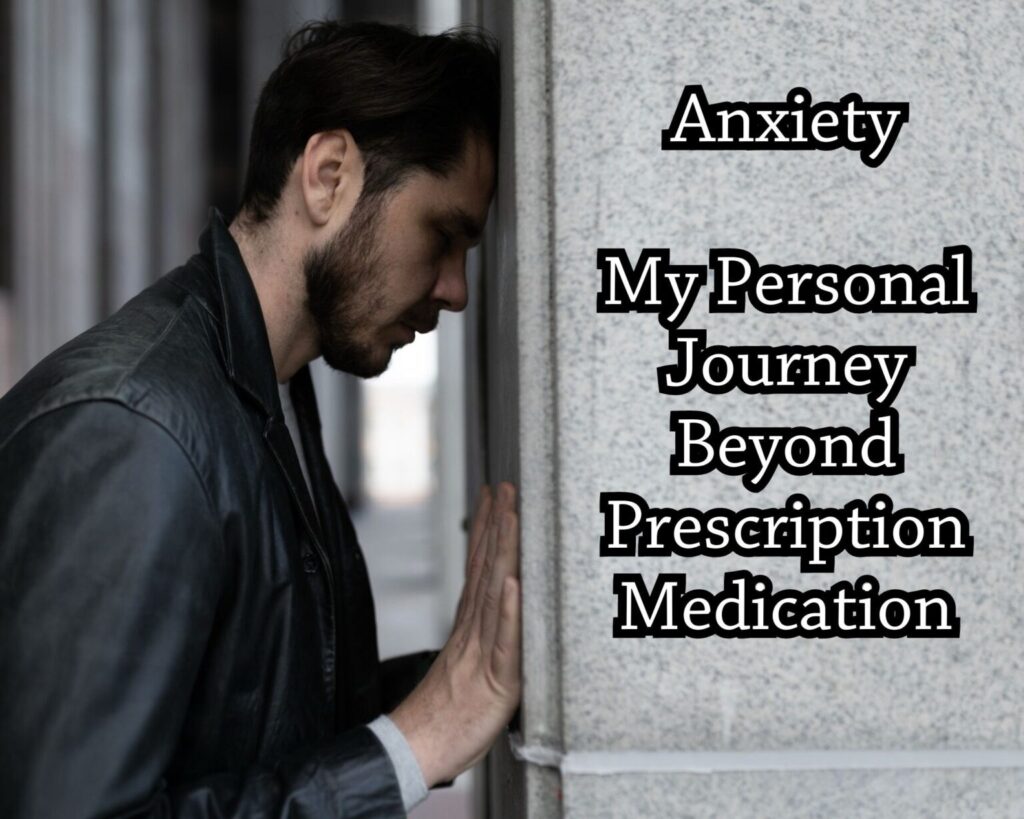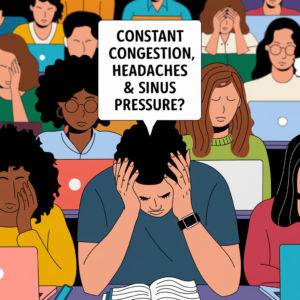
What to Expect in the First Week of Zoloft
Starting a new medication can be both a hopeful and daunting experience. When I first started Zoloft, I was hopeful it would help with my anxiety and depression, but I wasn’t prepared for the side effects that hit me during the first week. Like many people, I experienced a range of physical and emotional shifts as my body adjusted to the medication. The truth is, while Zoloft is highly effective for treating conditions like depression and anxiety, the first week can be a bit challenging due to some unexpected side effects.
If you’re starting Zoloft or thinking about it, it’s important to know that experiencing side effects early on is common. They can range from mild nausea to difficulty sleeping, but the good news is that for most people, these side effects are temporary. In this article, I’ll walk you through what you can expect during the first week on Zoloft, including the most common side effects and some tips on how to manage them.
While it can be tough at first, staying informed about what’s happening to your body can make the process feel less overwhelming. Let’s dive into some of the common side effects you might experience in those early days.

Common Side Effects During the First Week of Zoloft
During my first week on Zoloft, I was surprised at how quickly some of the side effects kicked in. Within the first few days, I started noticing changes that made me question whether this medication was the right fit for me. But after some research and talking with my doctor, I realized that these side effects were completely normal and usually a part of the body’s adjustment period.
Here are some of the most common side effects you might experience during the first week:
1. Nausea
This was one of the first things I noticed, especially within the first few days of starting Zoloft. Mild nausea hit me a few hours after taking the medication. I learned that this happens to many people and is typically short-lived as your body adjusts to the new serotonin levels. For me, it helped to take Zoloft with food to lessen the nausea.
2. Headaches
Another common side effect during the first week is headaches. I experienced dull headaches off and on, which I now know is a reaction to the body’s adjustment to the increased serotonin. While they were uncomfortable, they did begin to fade as I progressed through the week.
3. Insomnia
One of the more disruptive side effects for me was insomnia. I found myself lying awake at night, struggling to fall asleep. It wasn’t until I spoke to my doctor that I understood how Zoloft can impact your sleep cycle, particularly in the first few weeks. If you’re struggling with insomnia like I did, you might want to read more about Zoloft Insomnia and How to Beat It for helpful strategies.

4. Dizziness
I also experienced occasional dizziness, especially when standing up quickly. This feeling usually passed within a few minutes, but it was enough to make me feel lightheaded. Drinking plenty of water and taking things slow helped me manage this side effect.
5. Dry Mouth
A constant dry mouth was something I didn’t expect. I found myself drinking more water than usual to keep this side effect in check. Keeping a water bottle handy and using sugar-free lozenges or gum helped me deal with the discomfort.
6. Appetite Changes
During the first week, I noticed that my appetite fluctuated. Some days I had no desire to eat, while other days I felt hungrier than usual. I learned that this is another common side effect as your body adjusts to Zoloft.
These side effects, while uncomfortable, were manageable with a few lifestyle adjustments. Most importantly, they started to lessen as my body adapted to the medication. If you’re experiencing any of these symptoms, know that they are usually temporary and are a normal part of the adjustment process. However, always reach out to your doctor if the side effects become too intense or persistent.

How Soon After Starting Zoloft Do Side Effects Begin?
When I first started Zoloft, I was curious about how quickly the side effects would kick in. It didn’t take long. For me, I began to notice the effects just a couple of days after taking my first dose. From what I’ve learned, this is quite common—many people experience side effects within the first 2 to 3 days of starting Zoloft.
The body’s immediate response to Zoloft is due to how the medication begins working on serotonin levels right away. Serotonin plays a major role in regulating mood, but it also affects other bodily functions, such as sleep, appetite, and digestion. This rapid adjustment to serotonin levels is what typically causes the early side effects.
Typical Timeline for Side Effects:
- First 2-3 Days: You may start to feel mild symptoms like nausea, headaches, or dizziness. This was when I first noticed the nausea creeping in, and the occasional headaches followed soon after.
- Day 3 to 7: By this time, other side effects like insomnia or dry mouth might become more noticeable. For me, insomnia hit hard around the middle of the first week, disrupting my usual sleep routine. If you’re experiencing this, I recommend reading more about how to manage Zoloft insomnia for tips on getting better sleep.
Why Do Side Effects Happen So Quickly?
Zoloft, like many SSRIs, starts to impact the balance of serotonin almost immediately. While this is ultimately beneficial for managing depression and anxiety, the sudden changes in brain chemistry can temporarily cause disruptions in other systems, leading to the side effects many of us experience early on.
Though these side effects can feel discouraging at first, they’re usually a sign that the medication is doing its job. In most cases, these symptoms start to subside as your body adjusts.

How Does Zoloft Make You Feel in the First Week?
The first week on Zoloft can feel like an emotional and physical rollercoaster. For me, the experience was a bit of a mix—some days I felt more relaxed, while other days I struggled with feeling foggy and anxious. Everyone reacts differently to Zoloft, but it’s common to experience a range of emotions and sensations during those first few days as your body adjusts to the medication.
Physical Feelings in the First Week:
- Fatigue or Drowsiness: Some people, myself included, feel extra tired during the first few days. I had moments where I felt like I could nap at any time, and while this subsided as my body adjusted, it was a noticeable shift at the beginning.
- Restlessness or Anxiety: Strangely, while Zoloft is designed to reduce anxiety, it’s not uncommon to feel an increase in restlessness or jitteriness during the first week. I experienced a mild uptick in anxiety early on, but my doctor reassured me that this is a typical reaction as your brain adapts to the changes in serotonin.
- Emotional Sensitivity: During my first week, I found myself feeling more emotionally sensitive than usual. This ranged from mood swings to feeling a little more irritable. It felt like my emotions were fluctuating unpredictably. Again, this is normal in the early days as the medication takes effect.
Mental and Emotional Effects:
- Improved Mood (For Some): While some people take a little longer to feel the positive effects of Zoloft, others might experience an early lift in their mood. Personally, I started noticing slight improvements in my mood during the end of the first week, though it was subtle.
- Foggy or “Out of It” Feeling: This is another common experience. For me, it felt like my brain was a little foggy, almost like I was on autopilot some days. This sensation tends to decrease as your body adjusts to the medication.
Why the Emotional and Physical Fluctuations?
Zoloft works by gradually increasing serotonin levels in the brain, which regulates mood and other functions. However, as the body adjusts to these changes, you may feel some fluctuations in mood or energy levels. This is part of the process, and while it can be frustrating, it’s usually temporary.
If you find yourself feeling emotionally or physically off balance in the first week, know that this is common and generally improves as your body adapts. If, however, these feelings become overwhelming, it’s always a good idea to talk to your doctor for additional guidance.

Dealing with Zoloft Insomnia in the First Week
One of the most frustrating side effects I encountered during the first week on Zoloft was insomnia. Even though I felt tired throughout the day, I would lie in bed at night, unable to fall asleep. This was new for me, as sleep had never been much of an issue before starting the medication. After doing some research, I learned that insomnia is a common side effect of Zoloft, especially during the adjustment period.
Why Does Zoloft Cause Insomnia?
Zoloft affects the brain’s serotonin levels, and while this helps improve mood and reduce anxiety, it can also disrupt your sleep-wake cycle. For some people, the medication’s stimulating effect can make it difficult to fall or stay asleep. I found myself wide awake in the middle of the night, even though I was exhausted.
How to Manage Zoloft-Induced Insomnia
Thankfully, I found a few strategies that helped me cope with the insomnia:
- Take Zoloft in the Morning: One of the first adjustments I made was switching from taking Zoloft at night to taking it in the morning. This helped reduce the stimulating effects of the medication by bedtime and made falling asleep easier.
- Practice Good Sleep Hygiene: Creating a sleep-friendly environment was crucial. I made sure my room was cool, dark, and quiet, and I avoided screens for at least an hour before bed. Simple habits like these made a noticeable difference in helping me relax at night.
- Consider Relaxation Techniques: Meditation and deep breathing exercises helped calm my mind before bed. On nights when I felt particularly restless, these relaxation techniques worked wonders in helping me unwind.
When to Talk to Your Doctor
If you’re struggling with Zoloft-induced insomnia, it’s important to be patient, as your body may just need time to adjust. However, if the insomnia becomes severe or persists beyond the first few weeks, it’s worth discussing with your doctor. They might suggest adjusting your dose or trying other strategies to improve your sleep.
For more in-depth tips on how to combat Zoloft-related insomnia, you can check out this detailed guide: Zoloft Insomnia: Why It Happens and How to Beat It.

How Long Does It Take to Adjust to Zoloft?
As I moved through the first week on Zoloft, the question that kept coming up was, How long will these side effects last?Like many people, I wanted to know when the nausea, headaches, and insomnia would finally ease up. For most people, it takes about 1 to 2 weeks to start adjusting to Zoloft, though the timeline can vary depending on the individual.
Typical Adjustment Period
During the first week, side effects like nausea, headaches, and insomnia are often at their worst. This is because your body is rapidly adjusting to the increased serotonin levels in your brain. The good news is that, for many people, these symptoms start to decrease after about 7 to 10 days.
- Week 1: The most intense period for side effects. You’re likely to experience some level of nausea, dizziness, and sleep disturbances during this time.
- Week 2: By the second week, most people start to notice that side effects are less frequent or severe. This is when I personally began to feel better, with fewer headaches and a gradual improvement in my sleep.
- Weeks 3 and Beyond: By the third week, many of the early side effects should have faded, and your body will have largely adjusted to the medication. At this point, you may also start to feel the positive effects of Zoloft more clearly, like improvements in mood and anxiety.
Factors That Affect the Adjustment Period
Everyone’s experience with Zoloft is different, and several factors can influence how long it takes for your body to adjust:
- Dosage: Higher doses may lead to more intense side effects, which could take a little longer to subside. If you’re on a lower dose, you might experience milder symptoms, but the adjustment timeline can still vary.
- Your Body’s Chemistry: Some people are more sensitive to changes in serotonin, which can mean a longer adjustment period. Others may adjust more quickly and experience minimal side effects.
What to Do if Side Effects Persist
While most people feel better after the first 1 to 2 weeks, some may experience side effects for a longer period. If your side effects haven’t improved by week 3 or if they’re significantly affecting your daily life, it’s a good idea to talk to your doctor. They might suggest adjusting your dosage or exploring other ways to help manage the symptoms.

Tips for Managing Zoloft Side Effects in the First Week
The first week on Zoloft can be challenging, but there are ways to make the side effects more manageable. When I was going through it, small changes in my daily routine made a big difference in how I felt. Here are some practical tips I used to cope with the common side effects like nausea, dizziness, and insomnia during those early days.
1. Stay Hydrated
Nausea and dry mouth were two of the biggest side effects I dealt with. Drinking plenty of water throughout the day helped reduce both. I found that sipping on water, herbal teas, or even sucking on ice chips helped me manage the dry mouth and kept the nausea at bay.
- Tip: Try to avoid sugary drinks or caffeinated beverages, as these can make nausea and dry mouth worse.
2. Eat Small, Frequent Meals
When I first started Zoloft, my appetite fluctuated. Some days I didn’t feel like eating, while other days, I felt hungrier than usual. To manage the nausea, I began eating small meals or snacks every few hours. This kept my stomach settled and prevented the nausea from getting too severe.
- Tip: Stick to light, bland foods like crackers, toast, or bananas if you’re feeling queasy. Avoid heavy, greasy foods that might upset your stomach further.
3. Take Zoloft in the Morning
After a few sleepless nights, I decided to switch to taking my Zoloft in the morning instead of at night. This made a huge difference in reducing my insomnia. By taking it earlier in the day, the stimulating effects wore off by the time I was ready for bed, helping me sleep more soundly.
- Tip: If you’re experiencing insomnia or restlessness, try taking your Zoloft with breakfast to see if it helps. For more tips on managing Zoloft-related insomnia, you can read this guide on Zoloft Insomnia: Why It Happens and How to Beat It.
4. Rest When You Can
Fatigue hit me hard during the first few days on Zoloft. I felt more tired than usual, so I made it a point to take breaks and rest when I needed to. It helped to listen to my body and not push through the fatigue, knowing that my energy would return as I adjusted to the medication.
- Tip: If possible, try to keep your schedule light during the first week. Give yourself time to rest and let your body adjust.
5. Move Slowly to Avoid Dizziness
Dizziness was another side effect that came up for me, particularly when I stood up quickly. To manage this, I started taking it slow when getting up from sitting or lying down. Drinking water also helped reduce the lightheadedness I was feeling.
- Tip: If you feel dizzy, take a moment to sit or lie down until the feeling passes. Staying hydrated and getting up slowly can help prevent dizziness.
6. Talk to Your Doctor
If any side effect becomes too overwhelming, it’s always a good idea to reach out to your doctor. They may suggest adjusting the dosage or timing of your medication to better suit your body’s needs. For some, they may recommend starting on a lower dose and gradually increasing it to help minimize side effects.

Patience and Persistence During the First Week of Zoloft
Starting Zoloft can feel like a rollercoaster, especially during the first week. The combination of physical and emotional side effects can make you question whether the medication is right for you, but it’s important to remember that most of these effects are temporary. For me, sticking with it, staying patient, and using strategies to manage the discomfort were key to getting through those first few tough days.
While side effects like nausea, headaches, insomnia, and dizziness are common, they usually improve as your body adjusts to the medication. After about 1 to 2 weeks, I noticed a significant reduction in my side effects, and by week 3, I was beginning to feel the full benefits of Zoloft. If you’re struggling during the first week, remind yourself that this is a normal part of the process and that relief is on the horizon.
Here’s a quick recap of the key points to remember:
- Side effects usually begin within the first few days and can include nausea, headaches, and insomnia.
- Most people adjust within 1 to 2 weeks, and side effects gradually lessen.
- Insomnia can be managed by adjusting the timing of your dose—taking Zoloft in the morning may help reduce nighttime restlessness.
- If side effects become severe or don’t improve after a few weeks, don’t hesitate to consult your doctor.
Your mental health journey is important, and while the first week on Zoloft can be uncomfortable, the long-term benefits can outweigh the short-term challenges. Stay patient, give your body time to adjust, and don’t be afraid to reach out for help when needed.

For more guidance on handling specific side effects like insomnia, check out Zoloft Insomnia: Why It Happens and How to Beat It. And if you’re still unsure whether Zoloft is right for you, this resource on Exploring the Best Depression Medications may offer some helpful insights into other options.
By focusing on the bigger picture and making small adjustments, you can move past the initial discomfort and start feeling the positive effects of Zoloft. Here’s to taking steps toward better mental health—and eventually, better nights of sleep!
As an Amazon Associate we earn from qualifying purchases through some links in our articles.




